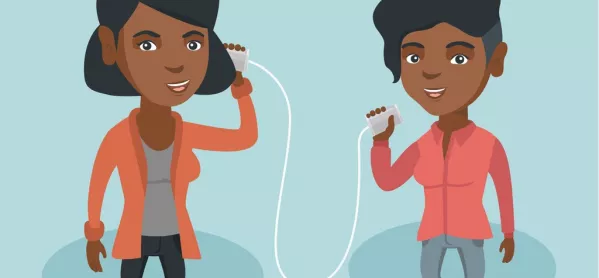- Home
- 3 tips for the IB Language B listening test
3 tips for the IB Language B listening test

When I first learned that a listening comprehension assessment was being introduced to the International Baccalaureate Language B syllabus, I couldn’t help but feel a degree of apprehension.
I appreciate the need to address this very important aspect of language acquisition, but I soon realised that it would be an uphill climb to create interesting resources for this addition to the syllabus.
I spent hours upon hours trying to design exact replicas of the listening examples provided by the International Baccalaureate, attempting to get the formatting and the feel just right.
I believed that my hard work, which often stretched far into the evenings and sometimes weekends, was the right (possibly only) way to prepare my students for the listening assessment come exam time.
However, I soon realised that my efforts were misguided. I came to believe that I was not necessarily doing my students any favours by continuously creating exam-condition exercises.
International Baccalaureate: teaching tips
After all, the aim of language acquisition is not to create outstanding test takers but to nurture fluency and understanding in a global society. So I decided to shift the focus to teaching listening as a life skill rather than a course skill.
As a result, I refined my approach. Here’s how:
1. Teaching active listening skills
Listening is not a passive act of receiving information. For students to become skilled listeners, they need to work on their ability to take in and respond to information.
These skills can then be applied in circumstances far beyond the classroom or the exam room, such as in the workplace or as a means to increase intercultural understanding.
I applied this in lessons by having students listen to a short audio segment and then asking them to evaluate or interpret what they heard, or come up with open-ended questions as a response.
Instead of simply focusing on getting students to retrieve specific information (which is important), the broad consensus in the classroom was that, by applying active listening strategies, students felt better equipped to take in information and process it.
By asking students to paraphrase, summarise, clarify, and respond to texts, they become better listeners under exam conditions, but also in their daily lives as they play the role of a supportive friend, family member or possibly boyfriend or girlfriend.
2. Allowing students to set tone and purpose
When asking students about the tone and purpose of a text or a listening segment, I couldn’t help but feel like I was conducting a vocabulary test as opposed to giving them an opportunity to meaningfully reflect on the intentions of an author or speaker.
Although there is merit in appreciating the tone and purpose of a text through active comprehension, I felt there was far more to be gained from turning the tables to enhance the students’ understanding of nuance and intention.
I created activities where students had to conduct conversations or deliver speeches with a predetermined tone or purpose, or provide a topic for discussion, and reflected with students on the tone and purpose of their expression, be it deliberate or inadvertent.
While this may be an appropriate activity for more advanced learners, it was evident that students were far more confident with identifying these aspects of expression once they had been given an opportunity to produce them themselves.
3. Understand the purpose of exam questions
A common complaint from my students, especially when they work with authentic assessment material, is that they believe a lot of the questions are designed to trick them into giving the wrong answer and that this is a battle they cannot win.
By drawing comparisons between their listening skills and the critical-thinking skills they develop in theory-of-knowledge lessons, the students gradually came to understand that to become successful listeners, they would need to challenge their assumptions and rely less on conclusions they may have arrived at through association or bias.
Daniel Kahneman’s ideas in the acclaimed work Thinking Fast and Slow proved to be a useful resource here and, once students became more aware of the different kinds of cognitive effort - and were able to use this knowledge to their advantage - the trick question accusations quietly exited stage left.
I am still coming to terms with the changes to the syllabus, and it would be presumptuous of me to say that my strategies can be translated into tangible and quantifiable results, especially since the first assessments will only be carried out next year.
However, if my anecdotal evidence is anything to go by, I feel like the shift from listening as an exam skill to listening as a life skill has had very positive outcomes in the classroom so far.
A broader approach has resulted in more meaningful learning and more purposeful teaching for me. My focus is on developing rounded learners and active listeners who respond more meaningfully to what they hear around them instead of impatiently waiting for their turn to speak.
Perhaps that is a skill that more of us, including teachers, should be looking to develop.
Gudrun Bjorg Ingimundardottir is head of middle school and a language acquisition teacher at Saint Nicholas School in São Paulo, Brazil
Keep reading for just £1 per month
You've reached your limit of free articles this month. Subscribe for £1 per month for three months and get:
- Unlimited access to all Tes magazine content
- Exclusive subscriber-only stories
- Award-winning email newsletters
